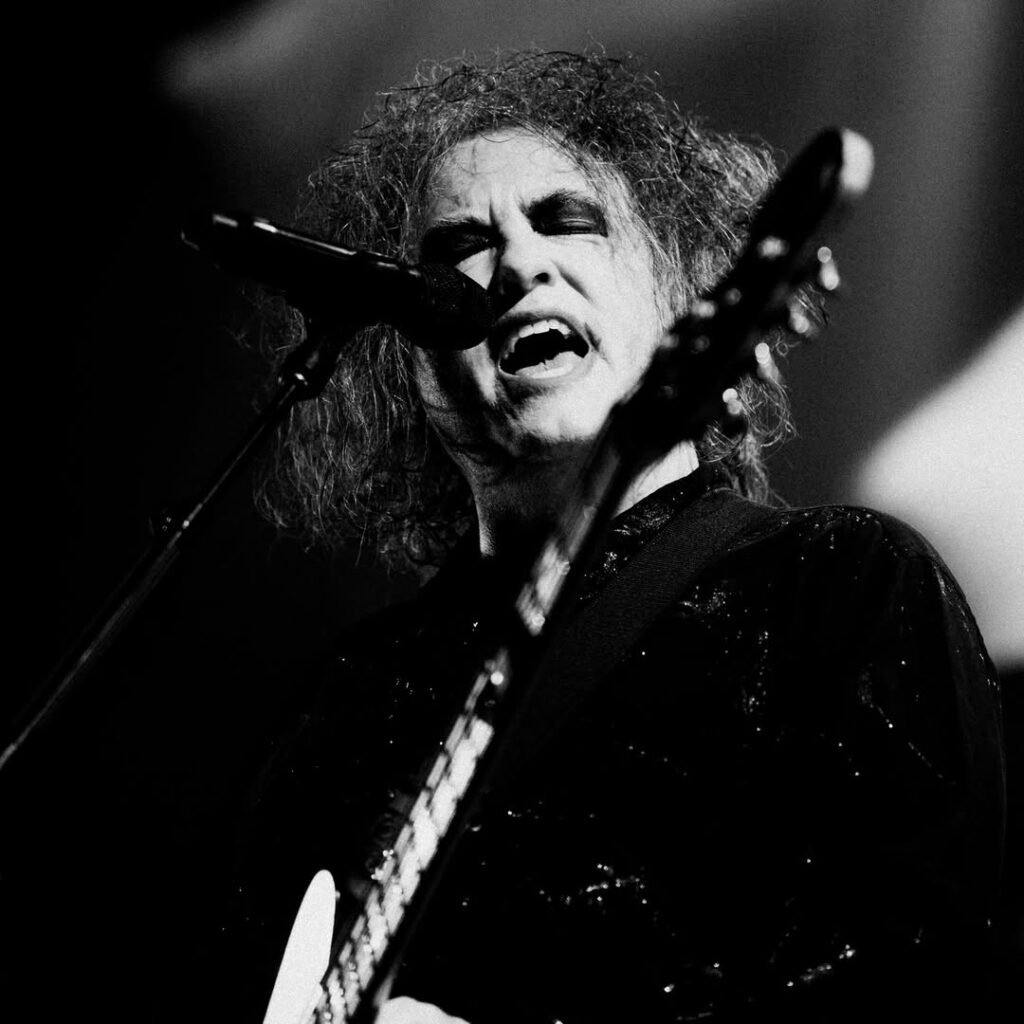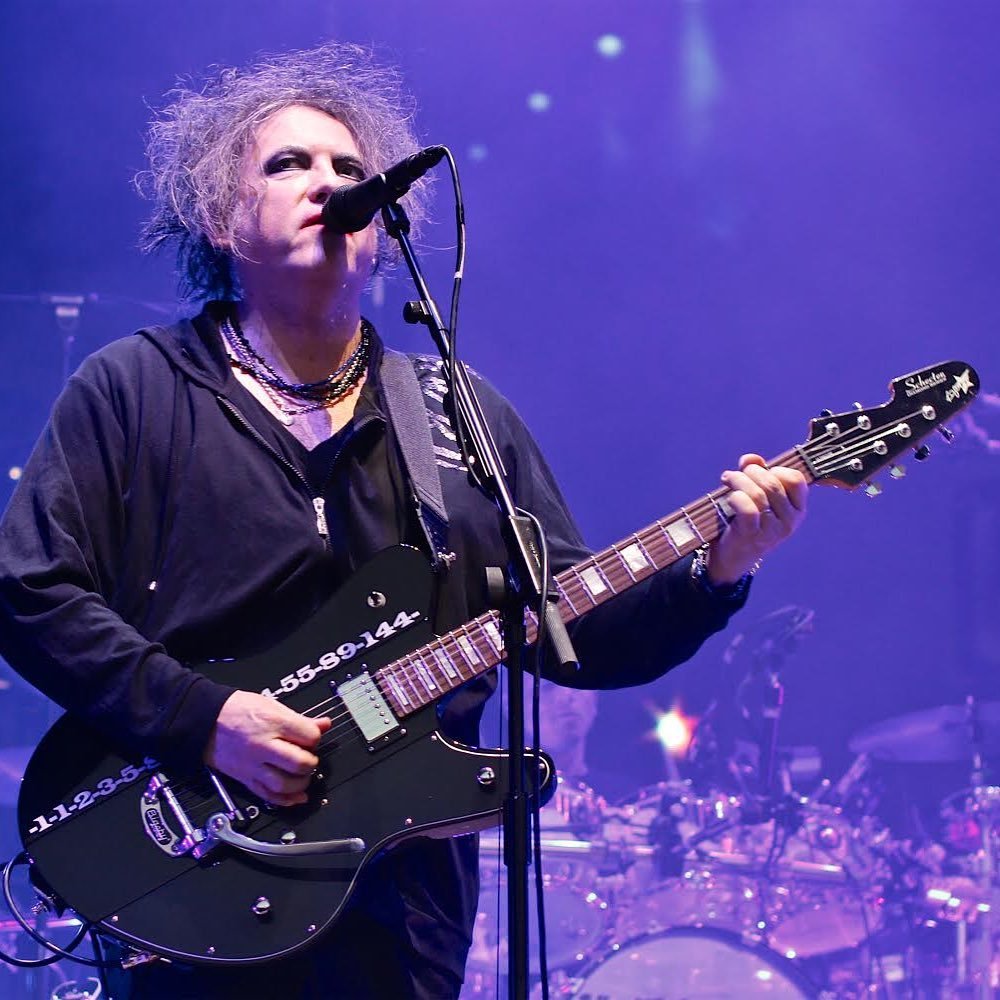Robert Smith stands as one of the most distinctive and influential figures in British music. As the co-founder, lead singer, guitarist, and chief songwriter of The Cure, Smith has shaped the sound and spirit of alternative rock for nearly five decades. His unmistakable look—pale skin, wild black hair, smeared lipstick, and dark eyeliner—helped define the goth subculture, but his musical reach extends far beyond any single label. Smith was born in Blackpool in 1959 and raised in Crawley, West Sussex. He picked up the guitar as a child, inspired by a wide range of artists from Jimi Hendrix to David Bowie and Alex Harvey. By 1976, he had formed The Cure with school friends, setting out to create music that stood apart from what he called the “dross” dominating radio and TV at the time.
The Cure: From Post-Punk Roots to Global Phenomenon
The Cure’s debut album, Three Imaginary Boys (1979), introduced a minimalist post-punk sound. As the band evolved, so did their music, embracing darker, more atmospheric themes with albums like Seventeen Seconds (1980) and Faith (1981). Smith’s poetic lyrics and haunting vocals became the band’s signature, drawing in a devoted following.
By the mid-1980s, The Cure had achieved international fame. Albums such as The Head on the Door and Disintegration delivered hits like “In Between Days,” “Lovesong,” and “Pictures of You.” Smith’s songwriting balanced melancholy with melody, creating songs that resonated with audiences worldwide. The band’s 1992 single “Friday I’m In Love” remains their most-streamed track in the UK, with over 137 million streams.
Smith’s willingness to experiment kept The Cure relevant across changing musical landscapes. He also collaborated with other artists, including a stint as guitarist for Siouxsie and the Banshees and as co-founder of the short-lived project The Glove.
Chart Success, Critical Acclaim, and a Lasting Legacy
The Cure’s influence is evident in their longevity and chart success. In 2024, the band released Songs of a Lost World, their first new album in 16 years, which soared to number one in the UK—an achievement more than three decades after their previous chart-topper. The album’s reception was overwhelming, with first-week sales outstripping the lifetime sales of several recent releases. Smith has continued to tease new material, revealing that a companion album is in the works and could be released as soon as summer 2025.
Smith’s impact goes beyond music. He was inducted into the Rock and Roll Hall of Fame with The Cure in 2019 and has been celebrated for his contributions to songwriting and alternative culture. Rolling Stone ranked him among the greatest singers of all time, and his influence can be seen in generations of artists who followed.

Recent Highlights: Glastonbury, Charity Work, and Future Plans
Smith remains a vital presence on stage and in the studio. At Glastonbury 2025, he joined pop star Olivia Rodrigo on the Pyramid Stage, performing “Friday I’m In Love” and “Just Like Heaven” to a rapturous crowd. Rodrigo introduced Smith as “the greatest songwriter to come out of England,” a sentiment echoed by many fans and critics.
Smith’s commitment to charity is equally notable. In 2026, he will curate the Teenage Cancer Trust concert series at the Royal Albert Hall, following in the footsteps of Roger Daltrey and other music legends. Smith has supported the charity for years, both through performances and fundraising efforts.
Looking ahead, Smith has hinted at major plans for The Cure’s 50th anniversary in 2029, suggesting that milestone could mark the band’s final chapter. He has expressed deep satisfaction with the band’s recent years, describing the last decade of live performances as the most rewarding of his career.
Conclusion
Robert Smith’s artistry lies in his ability to channel vulnerability, longing, and hope into music that is both deeply personal and universally relatable. His refusal to conform to trends, both musically and visually, has made him a beacon for outsiders and dreamers. Smith once said The Cure would continue as long as he could listen and think, “that’s a really good group. I wish I was in it”. Nearly fifty years on, he—and millions of fans—still do.
From shaping the goth and post-punk movements to topping charts in the streaming era, Robert Smith’s legacy is secure. As The Cure prepare for new music, more tours, and a landmark anniversary, Smith remains the heart of one of Britain’s most beloved bands—a true icon whose influence endures.
To read more click here

